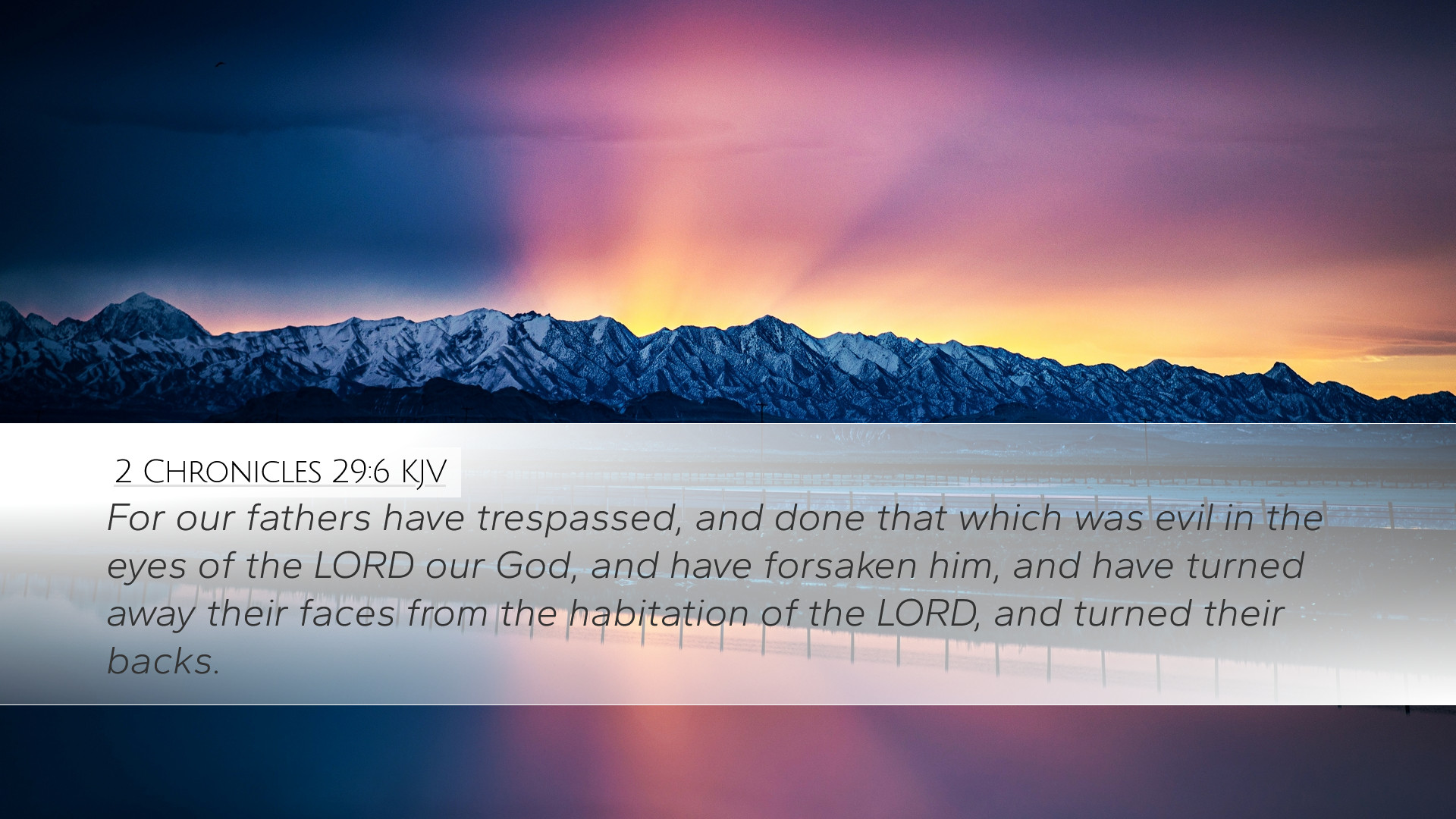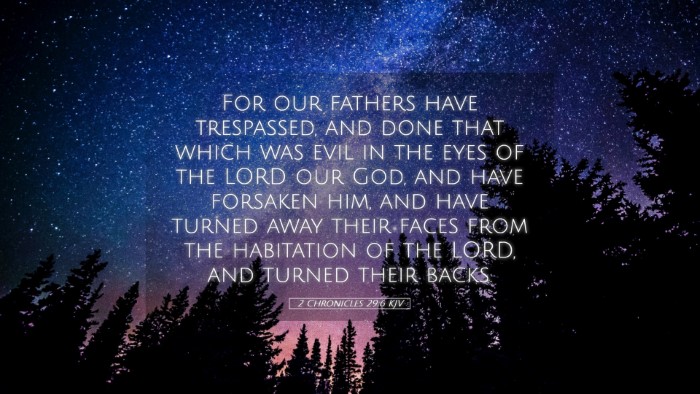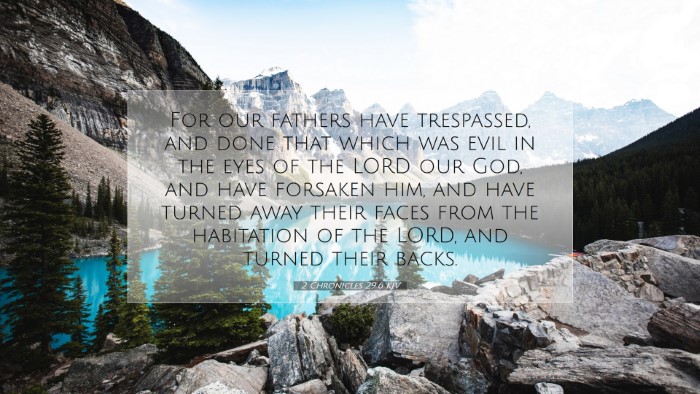Commentary on 2 Chronicles 29:6
Verse Context: 2 Chronicles 29:6 states, "For our fathers have trespassed, and done that which was evil in the sight of the Lord our God, and have forsaken him, and have turned away their faces from the habitation of the Lord, and turned their backs." This verse finds its place within the healing narrative of King Hezekiah's reign, marked by a dedicated effort to restore proper worship and reverence towards God in the kingdom of Judah.
Historical Background
This passage is situated during a critical period in Israel's history marked by idolatry and disobedience. Following the reigns of kings who led the people astray, Hezekiah emerges as a reformer, seeking to bring the nation back to the covenantal faithfulness that characterized the early days of Israel.
Exegetical Insights
-
Matthew Henry's Commentary
Henry emphasizes the grievousness of the nation's sins, noting that the elders recognized their forefathers' turning from God as a pivotal wrong. Their actions were not merely individual missteps but collective failures that resulted in spiritual decay. Hezekiah's acknowledgment of these wrongs was thus not only a reflection of repentance but a prerequisite to restoration.
-
Albert Barnes' Notes
Barnes provides a pastoral insight into the expressions of sin, particularly highlighting the 'trespasses' as a deliberate act against God's commandments. This aspect underscores the seriousness of sin as not just passive neglect but an active engagement in wrongdoing which calls for deliberate repentance and reorienting towards divine truths. He emphasizes that the recalcitrant behavior of the progenitors had ramifications that extend to future generations.
-
Adam Clarke's Commentary
Clarke discusses the significance of the terms used in the verse, particularly the phrases "turned away their faces" and "turned their backs," suggesting that this indicates a resolute act of rebellion against God. The comprehensive nature of this forsaking posed a dire warning for the contemporary heirs of these sins. Clarke also articulates the hope present in Hezekiah's leadership—signifying a critical juncture where renewed dedication to God becomes possible.
Theological Themes
This scripture underlines several prominent theological themes:
-
The Nature of Sin:
The passage calls for an acknowledgment of the seriousness of sin, particularly in how it structures community life and worship. It presents sin as a fundamental refusal to engage with God’s presence and holiness.
-
Repentance and Restoration:
Hezekiah's reign signals a vital call back to repentance. It serves as a model for understanding corporate sin and individual responsibility—how acknowledging the sins of our forebears can stimulate communal renewal.
-
Covenantal Relationship:
There is a recurring theme throughout the Old Testament of God's faithfulness in response to human errancy. This passage exemplifies the need for alignment with God’s covenant through worship and sacrificial offerings, aiming towards restoring the original intent of God’s relationship with His people.
Application for Contemporary Believers
Applying the lessons from 2 Chronicles 29:6 for today’s believers involves:
- Engaging in self-examination and corporate confession, recognizing how past actions may influence present worship practices.
- Emphasizing the need for genuine restoration in communal worship, reaffirming commitment to a lifestyle that reflects God’s holiness and grace.
- Understanding that rebellion against God's commandments not only affects the individual but has wider societal implications; therefore, fostering a culture of accountability and collective integrity becomes essential.
Conclusion
In conclusion, 2 Chronicles 29:6 serves as a poignant reminder of the consequences of turning away from God and the hope that can be achieved through repentance and restoration. The reflections from the public domain commentaries underscore a shared understanding of sin's gravity, the significance of leadership in spiritual renewal, and the overarching theme of God’s desire for a restored relationship with His people. As pastors, students, theologians, and scholars engage with this text, it is crucial to remember that acknowledgment of past wrongs can pave the way for transformative action in both personal and communal contexts.


